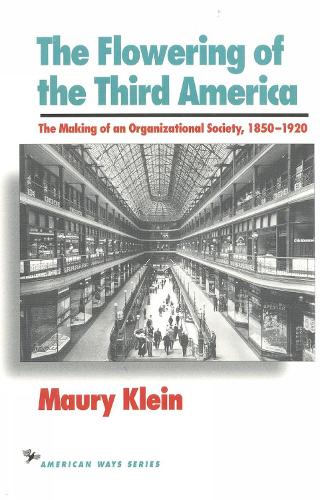
The Flowering of the Third America: The Making of an Organizational Society, 18501920
(Paperback)
Publishing Details
The Flowering of the Third America: The Making of an Organizational Society, 18501920
By (Author) Maury Klein
Ivan R Dee, Inc
Ivan R Dee, Inc
1st August 1993
United States
Classifications
Tertiary Education
Non Fiction
Social and cultural history
History of engineering and technology
History of the Americas
973
Physical Properties
Paperback
224
Width 139mm, Height 209mm, Spine 17mm
286g
Description
In a provocative new interpretation of a transforming era in American history, Maury Klein examines the forces that turned the United States from a rural agricultural society to an urban industrial one. Integrating social, economic, and business history, he stresses the driving role of technology and the emergence of a complex society of many cultures, lacking a cohesive center. The rise of a corporate economy, described by Mr. Klein, resulted in productive miracles unequaled elsewherebut at the cost of great social dislocation in American life. Gradually there arose a society that organized and formalized traditional American values in new and unexpected ways. This transformation produced a surprising new center for the diverse and fragmented American social order: the consumer economy. The new order flowered after the turn of the century and was advanced by the consequences of World War I, which left the United States as the world's major power. The Flowering of the Third America is a vivid and authoritative portrait of the making of modern America.
Reviews
In seemingly effortless prose . . . done with freshness and skill. * Choice Reviews *
Vibrant . . . a concise social history of America's transformation from agrarian to urban. * Publishers Weekly *
A balanced book . . . packed with significant facts . . . clear and concise. * Journal of American History *
Klein does an admirable job synthesizing a great deal of information. * Virginia Quarterly Review *
Author Bio
Maury Klein is professor of history and director of the honors program at the University of Rhode Island. His other books include Prisoners of Progress (about the rise of American industrial cities), The Life and Legend of Jay Gould, and a two-volume history of the Union Pacific railroad.
